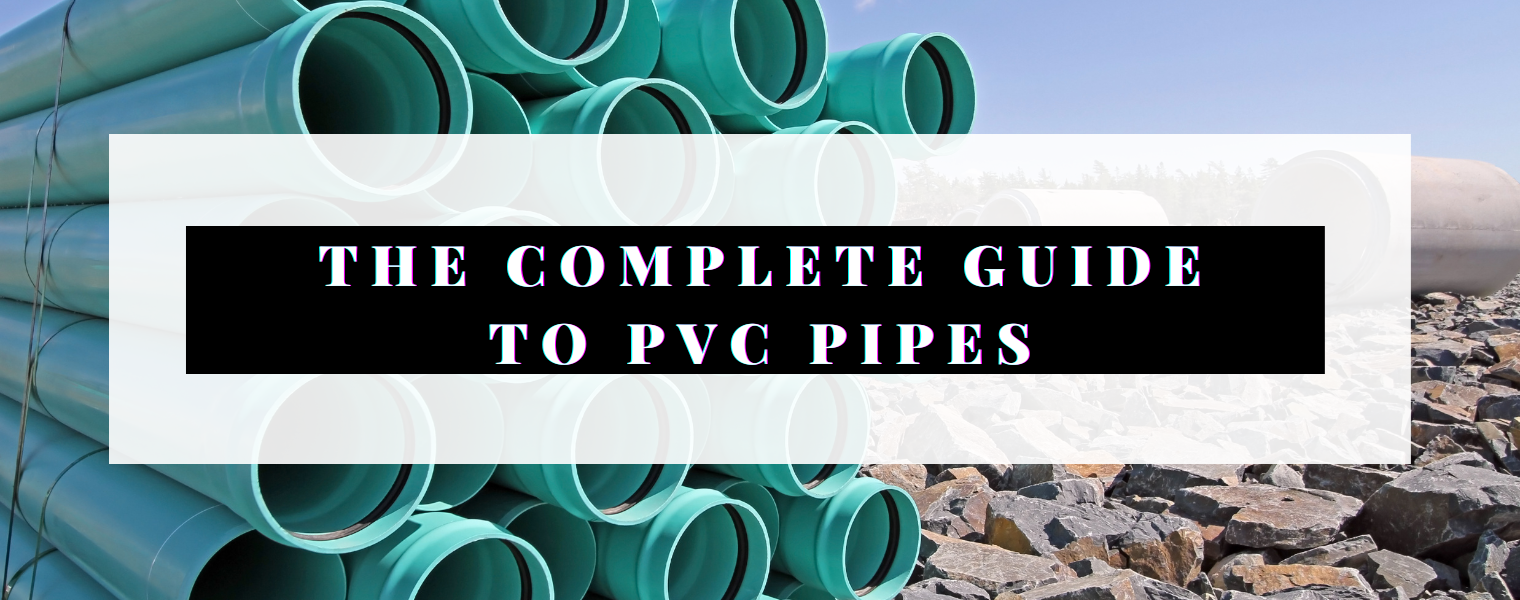
Plastic pipes have replaced metal and concrete pipes in the plumbing industry over the last two decades. Previously, plumbers faced major issues such as cracked pipes due to corrosion, unsanitary water supply due to bacteria formation, and heavyweight pipes that were difficult to install.
This is where plastic pipes came in as a game changer for all plumbing issues. PVC pipes have long been a standout among plastic pipes. PVC, or plasticized vinyl chloride, is a type of plastic that is resistant to weather changes, corrosion, and the formation of bacteria.
Furthermore, PVC pipes are lighter in weight than metal, concrete, and other plastic pipe variants, making them easier to install and fit. The need for a more sanitary water supply led to the development of an unplasticized variant of PVC pipes known as uPVC pipes.
In this blog, we will discuss what makes PVC a popular choice for plumbing works. In addition, we will go over the characteristics, and advantages of unplasticized PVC pipes.
Unplasticized polyvinyl chloride is a type of plastic created by plasticizing PVC. The plasticization process renders the material lead-free and non-toxic, making it healthier and environmentally friendly.
Pipes, window frames, door frames, and other products are made from uPVC. When compared to PVC, this material is lighter but stronger, requires less maintenance, and is less expensive. However, due to their distinct properties, both variants are equally important in the plumbing industry.
For the time being, let's focus on the unique characteristics of uPVC.
uPVC inherits many similar properties from the PVC plastic family. However, the material's plasticization results in a few distinct properties. Consider the following features:
UV-resistant : Because the material is UV-resistant, it prevents harmful UV rays from causing any damage.
Lead-free : Because of the un-plasticization process, the material is 100% lead-free, making it ideal for potable water distribution.
Non-toxic : In addition to lead, other toxins are removed during the un-plasticization of PVC.
Chemically inert : The material is not reactive to any harmful chemicals, preventing internal.
Corrosion-resistant : Because the material is corrosion-resistant, it does not develop rust or other corrosive layers.
Lightweight but strong : When compared to steel, concrete, and other plastic pipes, these pipes are lighter in weight but stronger, making them an excellent choice for heavy load-bearing applications. This is one of the key features that is allowing leading HDPE Pipe manufacturers to profit handsomely.
Simple to set up : Because these pipes are lightweight and do not require a solvent for joints, they make it simple to quickly install a fantastic HDPE piping system.
Cost-effective : Being light saves money on labor and heavy weight-lifting machines. Another reason why large industries are interested in HDPE piping systems.
High flow rate : HDPE pipes have internal and external surfaces that allow gas and liquid to flow with little to no friction. Solid particles can pass through these pipes with little turbulence.
Recyclable : Unlike most other plastic pipes, HDPE pipes are recyclable and can be easily molded into various shapes. Furthermore, these pipes are environmentally friendly and do not emit toxic gases during production.
Given all of the characteristics listed above, it is no surprise that HDPE piping systems dominate the piping industry. These pipes are widely used in various industries.
Agricultural Usage- HDPE pipes are an excellent choice for irrigation and other agricultural applications because they are corrosion resistant, chemically inert, inhibit germ growth, support high water flow and can withstand high water pressure due to their flexible walls.
Industrial Usage- HDPE pipes are used in a variety of industrial applications, including high-pressure pipelines and the transfer of chemicals, gases, and wastewater.
Household Usage- HDPE pipes are an excellent choice for transporting potable water in residential and commercial settings because they inhibit the growth of bacteria and other germs, keeping the water safe and pure.
Ultralightweight- uPVC is a very light plastic. It is even lighter than standard PVC in comparison.
Strong and long-lasting- Don't be fooled by the material's light weight; uPVC is extremely strong and can last for decades.
The first thing that comes to mind when discussing the advantages of using plastic pipes is the ease of installation and low maintenance. Aside from that, the following are the advantages of using uPVC-based pipes:
Easy to install- Because these pipes are lightweight, they are extremely easy to handle and install.
Cost-effective- Because the material is lightweight, it does not necessitate a lot of manual labour or heavy machinery. This reduces installation costs. Not only that, but uPVC-based pipes last for decades with little maintenance, making them a very cost-effective option in the long run.
No build-up- Because uPVC pipes are chemically inert, UV-resistant, and corrosion-resistant, they are immune to the formation of bacterial or hazardous layers.
Effective flow- The smooth texture of these pipes allows for a higher water flow rate, making them ideal for high-volume water distribution.
Joints that are simple and leak-free- uPVC pipes and fittings can be quickly joined with a special PVC solvent cement that ensures 100% leak-proof joints.
uPVC provides a cost-effective, long-lasting, and innovative solution to several plumbing issues that are common with metal and concrete pipes. Polyfab is a leading producer of uPVC pipes and fittings in Ethiopia, Kenya, and, Ghana. Contact our sales team to know more about the best pipes and fittings. Our experts will help you to find the right pipes and fittings according to your requirements.